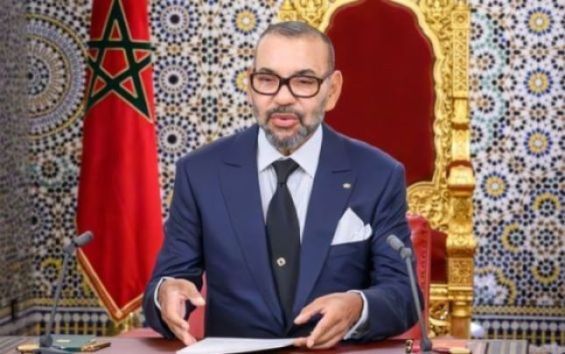King Mohammed VI addressed the nation on Monday, July 29th, on the occasion of Throne Day, marking the 25th anniversary of his accession to the throne.
King Mohammed VI emphasized that «the challenges our country is facing require further efforts and vigilance, as well as more creative solutions and good governance». He highlighted that «one of the greatest challenges we are facing today is that of water – a challenge that is becoming increasingly serious due to drought, the impact of climate change, naturally growing demand, and the delay in completing some of the projects planned as part of our water policy».
He stressed the importance of implementing «the 2020-2027 National Program for the Supply of Drinking Water and Irrigation Water, which has contributed - by the Grace of the Almighty - to mitigating the severity of the water situation».
«Given the growing needs and the constraints in this regard, I wish to insist on the regular updating of the national water policy mechanisms and the establishment of a strategic goal - regardless of the conditions or circumstances - which is to provide drinking water to all citizens and mobilize at least 80% of the irrigation water needed across the national territory», he stated.
Completing water projects
«In this regard, it is necessary to complete the dam construction program and prioritize the dams planned in areas receiving significant rainfall», he added.
«In keeping with my ambitious, proactive, and strategic vision, I recommend accelerating the completion of large-scale projects for inter-basin transfers: those from the Oued Laou and Loukkos basins to the Oum Er-Rbia basin, through the Sebou and Bouregreg basins. This will make it possible to retain one billion cubic meters of water that is being lost to the sea. Additionally, these projects will allow for a balanced distribution of national water resources across regions».
The King also emphasized the need to «accelerate the completion of seawater desalination plants, according to the program set for this purpose, aiming to produce more than 1.7 billion cubic meters annually».
«Thus, by 2030, Morocco will cover more than half its drinking water needs thanks to these desalination plants. This will also make it possible to irrigate vast farming areas, thereby enhancing the country’s food security. A case in point is the Casablanca desalination plant, which will be the largest of its kind in Africa and the second worldwide to be 100% powered by clean energy».
King Mohammed VI highlighted that the biggest challenge remains «the completion of the plants programmed and the related renewable energy projects on time and without delay. Since water production from desalination plants requires supplying these facilities with clean energy, it is necessary to expedite the completion of the electrical connectivity project to transfer renewable energy from the southern provinces to the country’s central and northern areas as soon as possible».
«No room for negligence, delay, or mismanagement»
He called for the development of a national industry in the field of desalination, the creation of specialized training divisions for engineers and technicians, and the encouragement of Moroccan companies specialized in the construction and maintenance of desalination plants.
«There is no room for negligence, delay, or mismanagement in such a crucially vital sector as that of water», he emphasized.
«Considering the efforts being made to provide water for all, we ought to be honest with ourselves regarding the sound, rational use of water resources», the King said. «Spending billions and billions to mobilize water resources, only to see cases of waste and misuse continue to exist, is unacceptable. Preserving water is a national responsibility that concerns all institutions and all stakeholders. It is also every citizen’s solemn duty».
He urged the «authorities concerned to be stricter when it comes to protecting the Nation’s water resources, to set up a water police, and to reduce excessive water use and chaotic water pumping practices».
The Sovereign directed «coordination and consistency between the water policy and the agricultural policy, especially in periods of water scarcity», and called for the «use of drip irrigation across the country».
«With regards to the Kingdom’s southern provinces, the water desalination plants completed there have significantly contributed to the region’s economic and social development», he noted. «I therefore call for the expansion of the Dakhla plant and an increase in the production capacity of similar facilities in the future, relying on these provinces’ significant potential for clean energy production to meet the needs of the population and productive sectors such as agriculture, tourism, and industry».





 chargement...
chargement...













